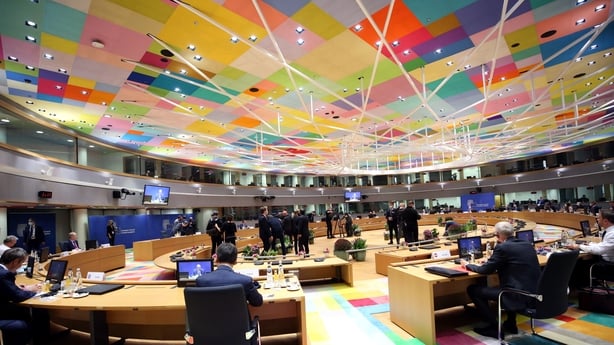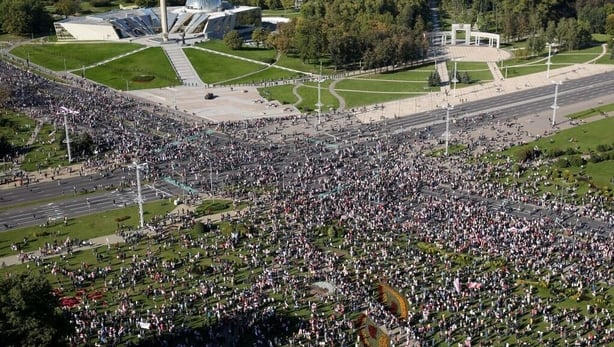The EU will hit Belarus officials with long-awaited sanctions over the country's political crisis, drawing an angry response from Minsk and its ally Moscow.
After more than six weeks of diplomatic efforts, EU leaders finally persuaded Cyprus to drop its veto on sanctions at a summit in Brussels, opening the way for some 40 members of President Alexander Lukashenko's regime to be listed.
The targets for the travel bans and asset freezes are officials the European Union blames for rigging the 9 August election that returned Mr Lukashenko to power and for orchestrating a brutal crackdown by security forces on anti-regime protests that followed the vote.
Belarus swiftly announced tit-for-tat "counter sanctions" against the EU, though it was not clear what form these would take or what they would target.
"In connection with visa sanctions adopted by the EU against a number of Belarusian officials, the Belarusian side from today is introducing a list of reciprocal sanctions," Belarus's foreign ministry said in a statement.
The ministry said that by imposing sanctions the EU had "alienated" the country, which western commentators have dubbed "Europe's last dictatorship" under Mr Lukashenko's rule.
Belarus said it would not disclose which European officials were being targeted, but threatened "even more serious consequences" if the EU expands its restrictions.

Protesters have taken to the streets of Belarusian cities since Mr Lukashenko claimed a sixth term with 80% the vote.
Riot police have detained thousands of protesters, many of whom alleged torture and abuse in custody, prompting international condemnation.
Russia has backed its longstanding ally Mr Lukashenko in the crisis, offering financial backing and hinting at military support if events turn against him.

The Kremlin slammed the new EU sanctions, which follow similar measures from other Western governments including Britain and Canada.
"In general we are very, very negative about the sanctions policy... this is more a manifestation of weakness than strength," Kremlin spokesman Dmitry Peskov told reporters.
The EU had promised sanctions on Belarus since August but approval was held up by Cyprus, which refused to give its backing until the EU took more action on Turkey drilling for gas in its territorial waters.
The deadlock was finally broken early this morning after seven hours of summit haggling, with the 27 leaders agreeing a formal statement threatening Turkey with sanctions if it does not halt its activities.
We need your consent to load this rte-player contentWe use rte-player to manage extra content that can set cookies on your device and collect data about your activity. Please review their details and accept them to load the content.Manage Preferences
The EU sanctions will come into force later when they get their final formal legal approval, but there will be one big name missing from the list, Mr Lukashenko himself.
Unlike Britain and Canada, which listed the veteran leader in their measures, the EU decided to spare him in the hope of persuading him to engage in talks with the opposition aimed at ending the crisis.
German Chancellor Angela Merkel will host the main Belarus opposition leader, Svetlana Tikhanovskaya for talks on Tuesday.
Ms Tikhanovskaya, who claimed victory in the election, fled Belarus soon afterwards and has sought to keep up international pressure on the Minsk regime while protests continue on the streets.

